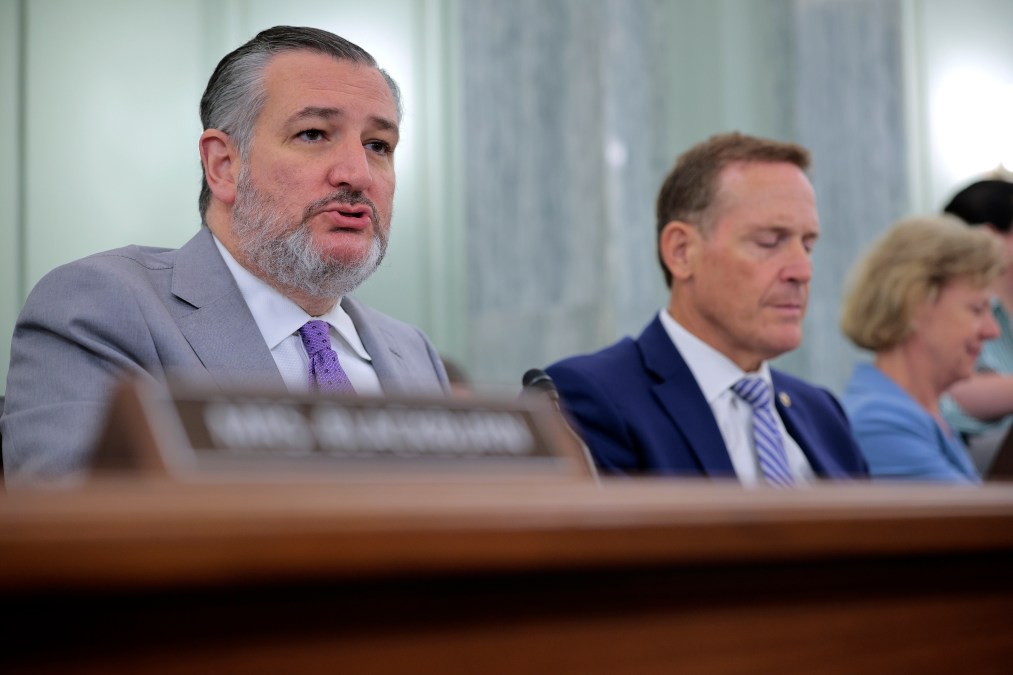Cruz to introduce proposal for regulatory AI sandbox program within OSTP

Senate Commerce Committee Chairman Ted Cruz said he would introduce legislation to establish AI sandboxes to allow companies “room to breathe” without running up against regulations.
Cruz announced that proposal as well as a legislative framework for AI policy ahead of a Wednesday hearing before the Subcommittee on Science, Manufacturing, and Competitiveness on the administration’s recent AI Action Plan. The concept of regulatory sandboxes were among the more than 90 policy recommendations outlined in that document.
“Under the Sandbox Act, an AI user developer can identify obstructive regulations and request a waiver or a modification, which the government may grant for two years via a written agreement that must include a participant’s responsibility to mitigate health or consumer risks,” the Texas Republican said during the hearing. “To be clear, a regulatory sandbox is not a free pass. People creating or using AI still have to follow the same laws as everyone else.”
The proposal comes as President Donald Trump has taken an approach to AI that aims to clear the way for companies working on the technology. Identifying and removing regulatory barriers to AI and limiting federal funding to states with AI regulations deemed “burdensome,” for example, were also recommendations from that plan.
During that hearing, White House Office of Science and Technology Policy Director Michael Kratsios voiced support for the forthcoming legislation and said he was excited to work with Cruz on the bill. He also said that the approach had already been successful in the commercial drone industry.
Trump signed an executive order during his first administration to create a pilot program that established sandboxes for drone operations, Kratsios said. That work resulted in data that was used to help the Federal Aviation Administration promulgate its recently published draft drone rule.
“I have personally seen the power of these sandboxes to be able to allow great American minds and innovators to actually put their tools to the test in real-life situations, and from there, be able to provide the necessary valuable feedback back to the regulators to be able to create the right regulatory frameworks,” Kratsios said.
Whether or not the proposal has support across the aisle isn’t yet clear.
Also during the hearing, Sen. Lisa Blunt Rochester, D-Del., said that her state launched its own AI sandbox to allow companies to test the technology, which aligns with the AI Action Plan. However, she said that while she appreciated Cruz’s proposal, she wasn’t “sure that OSTP is the appropriate place for it — if we need one at all.”
Per a draft of the legislation released by Cruz on Wednesday, which was first reported by Bloomberg, the bill would be able to apply for modifications or waivers to regulations getting in the way of their technologies, and OSTP would coordinate those requests across the government.
The corresponding legislative framework also released Wednesday, meanwhile, focuses on five pillars: Unleashing American innovation, protecting free speech, preventing patchwork regulation, halting nefarious uses against Americans, and defending “human value and dignity.”
Notably for the U.S. government, opening federal datasets for AI model training is nested under the first pillar. There weren’t additional details on that bullet point.






